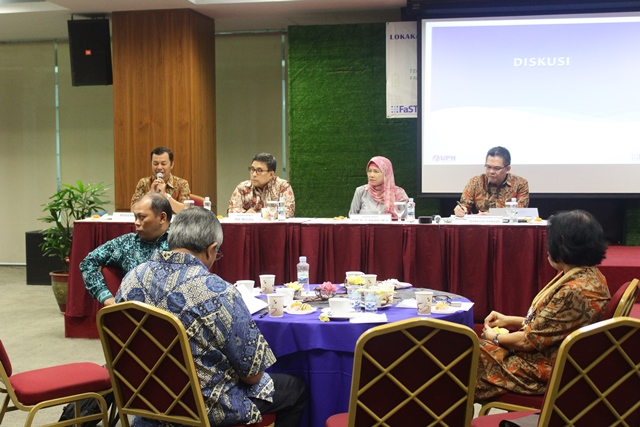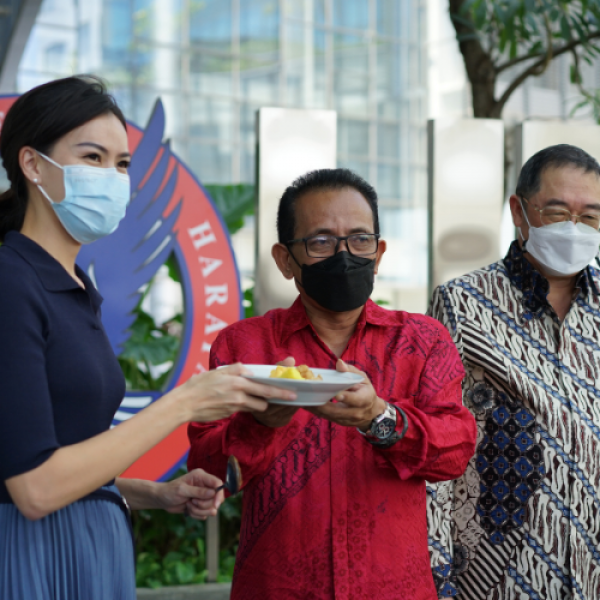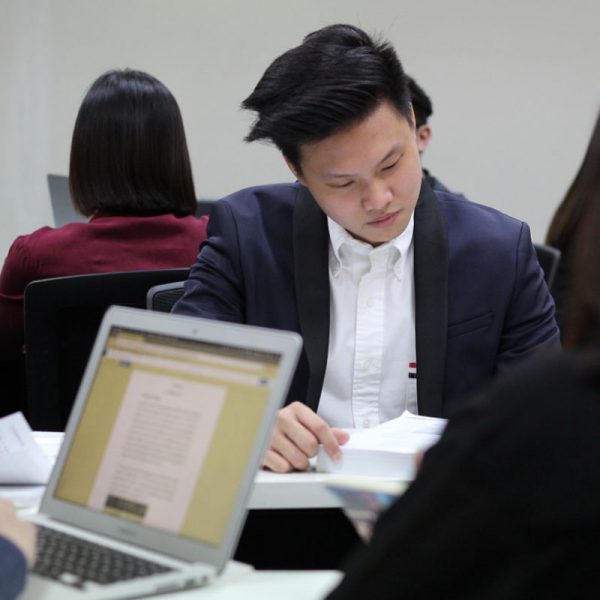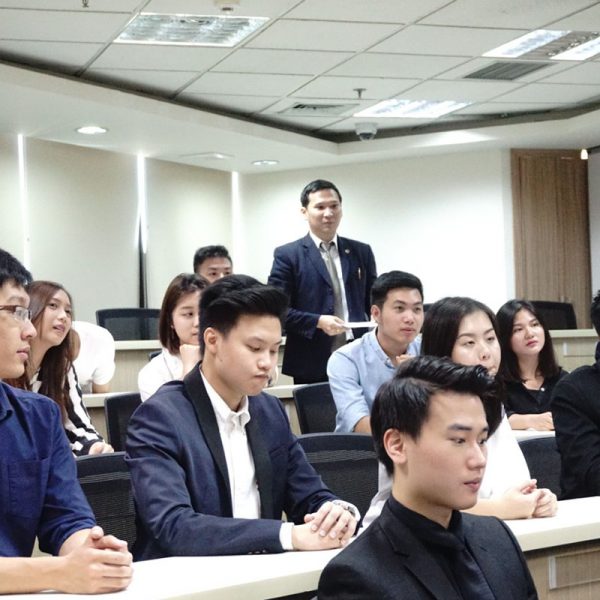2019
UPH Food Technology Facing the Industry 4.0 Era.

Universitas Pelita Harapan (UPH) Food Technology is currently focusing on welcoming the Industry 4.0 era that has started rolling into Indonesia. One of the ways of preparing the department for the new era is to hold a workshop to support the betterment and development of the Food Technology department operational curriculum on July 19, 2018, at MYC MPR, UPH Lippo Village, Tangerang.
This workshop discusses the theme ‘Terwujudnya Kurikulum Operasional Prodi Teknologi Pangan yang Handal dalam Menghadapi Peluang dan Tantangan di Era Industri 4.0’ (Constructing a Food Technology Operational Curriculum that is Capable of Facing the Opportunities and Challenges in the Industry 4.0 Era). The committee invited various academicians and industrial associates for the event. This workshop is attended by UPH Food Technology lecturers and staff, a representative of PATPI (the Association of Food Technology Experts in Indonesia), representatives of various industries (PT Ultra Prima Abadi, Indofood, Nutrifood, Sinar Sosro, Wilmar Group, and Campbell Arnott’s), representatives from Food Technology departments in other universities, and representatives of UPH Food Technology Student Council.
In his opening speech, the Rector, Dr. (Hon) Jonathan L. Parapak, M.Eng.Sc. wholly backs up the decision of the department to construct an updated curriculum that is capable of preparing graduates who will take front lead in their field and who can face changes head-on.
“We’re discussing an interesting theme – industry 4.0. This is in accordance with what has been addressed by the Director General of Higher Education in one of his meetings. In welcoming the Industry 4.0 era, we have to focus on 4Cs – critical thinking, creativity, communications, and collaboration. Today, we gather here to develop collaboration. With the Industry 4.0 that requires a lot of changes, UPH’s curriculum should be one that is anticipatory – a curriculum that can envision the demands of the future. This way, UPH’s Food Technology department can hold its ground in the new era.”
This workshop is led by experts in the field – Prof. Dr. Ir. Giyatmi Irianto, M.Si., PATPI First Chairman – Organizatoin Division; Adi Winata, Chief Executive Research and Development of PT Ultra Prima Abadi, and W. Donald R. Pokatong, Ph.D., Head of Department of UPH Food Technology, who briefed the audience on the curriculum implemented in UPH.
“UPH’s curriculum refers to national and international standards, the national standard set by PATPI and the international standard set by IFT (The Institute of Food Technologists). These two standards has enabled UPH’s Food Technology study program to lead in the Industry 4.0 era. However, we certainly still need guidance in order to grow and continually face challenges and opportunies in this industrial era,” Donald explained.
PATPI representative, Prof. Giyatmi, confirmed that the curriculum implemented by UPH has run in accordance with the national standard, but still needs a lot of preparation and suggestions from various parties to be ready for the Industry 4.0 era.
“The 4.0 Industrial Revolution is the age of technological disruption. This means Indonesia needs to improve a lot on the quality of its digital technology-based workforce. To produce competitive graduates, 3 new literacies are needed – data literation (the ability to read, analyze, and utilize big data in the digital world), technological literation (understanding the work of machines and technological applications), and human literacy (humanities, communication, and design, which are needed for man in order to have leadership and teamwork skills). In higher education, human literacy can be accommodated through thematic study designs, general education, extracurriculars, and internships. Data and technological literacies can be implemented in electives. It is hoped that through these new literacies, UPH graduates will have the ability to think critically, systematically, and laterally. There also needs to be a system of blended learning, where higher education institutions combine classroom learning with online learning,” Prof Giyatmi explained.
To show the need of an operational curriculum comprehensively, Adi Winata of PT. Ultra Prima Abadi also shared his experiences from an industrial perspective.
“The Industry 4.0 era started a phenomenon where the role of people is replaced by machines or robots, like those in the OrangTua Group factories. However, high-skilled human resources are still on demand, to operate those machines. These skills are far from mere knowledge and skills. A good attitude is important to face the advancements in the Industry 4.0 era. Graduates have to utilize technological developments responsibly. In addition, they have to be able to conduct more in-depth research and not blindly taking information for the Internet without considering the reliability of the source. These kinds of things should be heavily considered when constructing the updated curriculum,” Adi explained.
UPH Food Technology hopes that this workshop will help garner advice and suggestions to improve their curriculum, that UPH’s Food Technology department can be ready to compete in the Industry 4.0 era. (mt)



